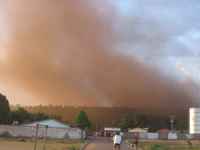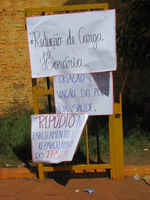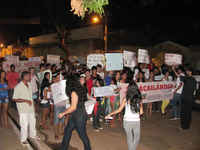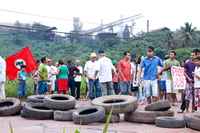We ask your help: click here to e-mail to the Mayor of Açailândia, to the Government and the General Attorney of Justice of Maranhão, northeastern Brazil, to say no more pollution killing the 1,100 residents of Piquiá de Baixo, no more excuses to delay their resettlement!
"Your time is up, Açailândia Mayor!" This was the message that more than a thousand inhabitants of the Piquiá de Baixo neighborhood conveyed through two protests which took place on July 18th. The residents, indeed, do not want to die from pollution, and are hoping that politicians follow through with their responsibilities (to better understand the situation you could click here) .
Conflicto entre los habitantes del barrio Piquiá de Baixo y la Alcaldesa de la ciudad brasileña de Açailândia, Gleide Santos. Los residentes quieren que la alcaldía de Açailândia done tierra para la construcción de viviendas.
En los últimos días, de hecho, los ciudadanos han decidido hacer públicas sus propios pedidos por medio de dos acciones muy visibles.
On February 27th , Ms. Joselma de Oliveira, a Brazilian activist representing over 300 families of the Piquia de Baixo community, all victims of the pollution caused by the mining and steel industries settled in Açailândia (State of Maranhão, Brazil) 20 years before, submitted information and a general update on the situation to the United Nations Special Rapporteurs who had taken action on this case and to the Permanent Mission of Brazil at the UN.
About 380 families (1,100 people) live for about 40 years in Piquiá de Baixo, Açailândia, Maranhão State, Amazon Region, Brazil. Since the arrival of the iron and steel industry in 1987, they have been affected by five pig-iron plants [1] , a railroad and other Vale’s industrial facilities [2] operating continuously and very close to their homes.







